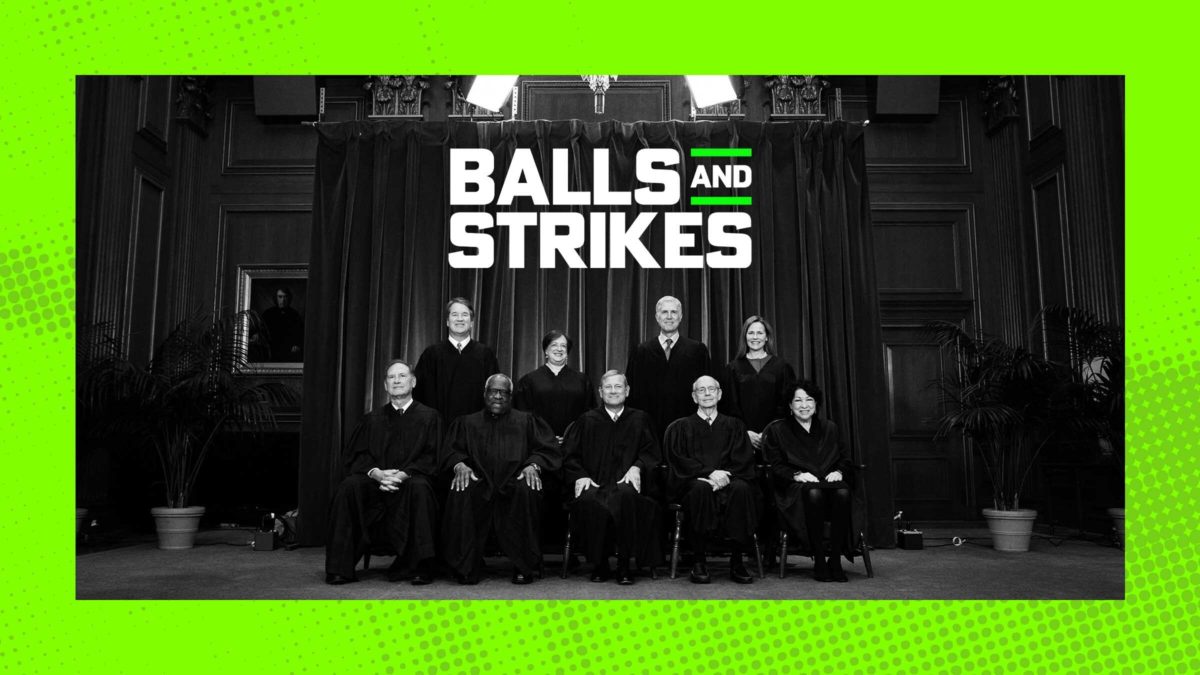William Rehnquist was a relative unknown when President Richard Nixon appointed him to the Supreme Court in 1971—an assistant attorney general from Arizona with no judicial, academic, or elected office experience. As the announcement drew nearer, Nixon began to worry about how the news would be received, and instructed his aides to “emphasize to all the Southerners that Rehnquist is a reactionary bastard, which I hope to Christ he is.” Rehnquist would spend the rest of his life proving Nixon extremely right.
Three years earlier, though, Rehnquist had been a relatively anonymous lawyer in Phoenix, where he practiced at a firm by day and dabbled in local Republican politics by night. As Phoenix began its transformation into a major city, he was enthusiastic about helping to shape its future: In 1964, city leaders were debating an ordinance that would have banned racial discrimination in hotels, shops, and restaurants. Of the 33 witnesses who testified before the city council that day, only three opposed the ordinance; the future Chief Justice of the United States was among them.
As John Jenkins recounts in The Partisan, a 2012 Rehnquist biography, Rehnquist indignantly cast the proposal as an “assault” on the private property rights of business owners who would no longer be able to exercise their sacred right to refuse service to Black people. “I am a lawyer without a client tonight,” he said. “I am speaking for myself.”
The city council listened politely to this mutton-chopped goofus and then passed the ordinance anyway, prompting Rehnquist to continue his grousing in a follow-up letter to the Arizona Republic. The law, he complained, “cannot remove the basic indignity to the Negro which results from refusing to serve him,” and instead “redresses the situation by placing a separate indignity on the proprietor.” He concluded: “It is, I believe, impossible to justify the sacrifice of even a portion of historic individual freedom for a purpose such as this.”
Rehnquist’s argument, of course, badly misses the point of public accommodations laws, which is not to magically erase racist beliefs from people’s brains like Tommy Lee Jones whipping out a giant neuralizer, but to prevent those racist beliefs from manifesting themselves in the form of people of color being unable to find a place to stay for the night. Equating the “indignity” of enduring centuries of pernicious discrimination to the “indignity” of having to serve paying customers of all races at your five-and-dime soda fountain is the kind of argument that only a cartoon-villain reactionary could find remotely persuasive.
What gets me here, though, is the timeline. Rehnquist spent 32 years on the Court, where he strained at basically every opportunity to narrow the scope of civil rights protections in America. Less than a decade earlier, he was standing before an elected legislature and denouncing a commonplace antidiscrimination law as a wholesale attack on freedom itself—and then, when he didn’t get his way, took the time to publish his grievances in the local paper of record, too.
Although there were a number of, say, troubling anecdotes from Rehnquist’s past that came up during his confirmation hearings, this one barely registered. “I think I have come to realize, more than I did at the time, the strong concern that minorities have for the recognition of those rights,” he told Indiana Senator Birch Bayh when asked about his comments. “I would not feel the same way today about it as I did then.”
Even if age were an excuse for bigotry, this was not some youthful indiscretion on Rehnquist’s part. This was the thoughtful conclusion of a grown adult who was active in civic life and had no reason to be shy about what problems he believed were important enough for the law to address, and what problems were beyond its scope. It is a tribute to the unearned reverence afforded to the Court that no one ever meaningfully held him accountable for it.
As always, you can find us at ballsandstrikes.org, or follow us on Twitter @ballsstrikes, or get in touch via[email protected]. Thanks for reading.
This Week In Balls & Strikes
“Progressive Federalism” Is a Trap, Anna Dorman
Like every fancy theory you learn about in constitutional law, federalism has no intrinsic value apart from the substantive outcomes it can deliver.
The Hollow Originalism of Amy Coney Barrett, James LaRock and Jacob Hammond
Overturning Supreme Court precedent is supposed to be difficult. In her academic writing, the newest justice previewed how she’d do it anyway.
How Cancel Culture Became Conservative Academia’s Favorite Grift, Elie Mystal
Georgetown didn’t fire Ilya Shapiro for his “lesser Black woman” comments. He decided to cancel himself instead.
Federal Judges Will Do Anything to Keep People In Prison Longer, Yvette Borja
Christopher Dominguez took a 28-year plea deal to avoid a 60-year minimum sentence. The next day, the First Step Act took effect, cutting that minimum in half. The Tenth Circuit’s analysis: Tough luck.
This Week In Other Stuff We Liked
The Supreme Court Is Building Its Own Surveillance State, Albert Fox Cahn, Wired
Searching clerks’ phones to find out who leaked the Dobbs opinion sets a dangerous precedent of exploiting digital rights.
After the Leak, the Supreme Court Seethes With Resentment and Fear Behind the Scenes, Nina Totenberg, NPR
Workplace morale seems low.
The Supreme Court Is Not Supposed to Have This Much Power, Nikolas Bowie and Daphna Renan, The Atlantic
Conflicts over constitutional issues are questions of political leadership, not legalism.
The Supreme Court One More Weakens Protections for Violated Rights, Erwin Chemerinsky, The Los Angeles Times
The Court washes its hands of responsibility for Congress’s failures.
This Week In Obscure Photos of Supreme Court Justices On Getty Images


